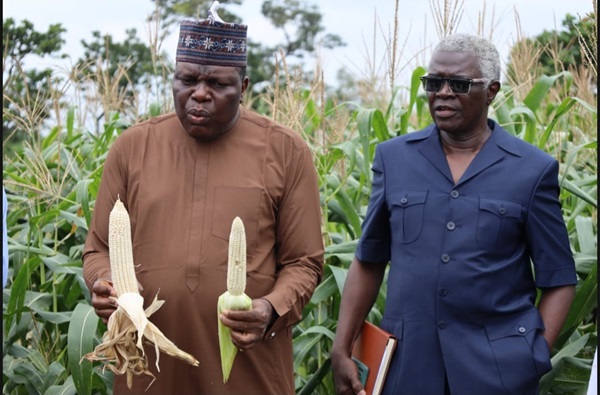Place your adverts here on InfoDig @ low rates; banner ads, sponsored links and guest articles etc. Contact us
 Boy with Monkeypox
Boy with MonkeypoxNigeria has seen a slight decrease in confirmed Mpox cases, according to the latest report from the Nigeria Centre for Disease Control (NCDC).
In epidemiological (Epi) week 38 of 2024, the NCDC reported 72 new suspected cases, compared to 71 suspected cases in the previous week (Epi week 37).
Mpox, formerly known as monkeypox, is a viral disease caused by the monkeypox virus. It shares similarities with smallpox, though it is generally less severe. Symptoms of Mpox include fever, rash and swollen lymph nodes. The disease spreads from animals to humans and between humans through close contact, respiratory droplets and contaminated objects.
In 2022, the World Health Organisation (WHO) and other global health bodies renamed monkeypox to “Mpox” to reduce stigma and discrimination associated with its original name. WHO also declared the recent Mpox outbreak a public health emergency of international concern after the discovery of a new variant.
The NCDC reported that confirmed Mpox cases saw a more significant drop in week 38, with only three confirmed cases compared to eight the previous week. These confirmed cases were reported in Plateau (2 cases) and Delta (1 case), reflecting the spread of Mpox across multiple states.
“This brings the total number of confirmed cases for 2024 to 1,164 across 35 states and the Federal Capital Territory (FCT), with 24 states reporting at least one confirmed case in recent months,” the NCDC stated.
Since the resurgence of Mpox in Nigeria in September 2017, the country has recorded 4,997 suspected cases and 1,164 confirmed cases, making up 23.3 per cent of suspected cases. The NCDC has also reported 17 deaths, underscoring the continued public health challenge posed by Mpox.
The NCDC highlighted that Mpox cases have been confirmed in 54 local government areas across 24 states, with states like Ogun, Akwa Ibom and Cross River contributing significantly to the number of suspected and confirmed cases in recent weeks. The National Mpox multi-sectoral Emergency Operations Centre (EOC) is coordinating the national response, working with various partners to ensure timely identification and management of cases.
As Mpox continues to spread across Nigeria, the NCDC has urged citizens to remain vigilant. Director-general of the NCDC, Dr. Jide Idris reiterated the importance of early detection and isolation, stressing that healthcare providers must maintain a high level of suspicion, especially in areas where confirmed cases have been reported.
“Preventing Mpox requires collective action. Nigerians must avoid close contact with individuals displaying symptoms such as fever and rashes, and practice good hand hygiene. Early reporting of symptoms is key to reducing transmission and controlling the outbreak,” Idris emphasised.
The NCDC’s data shows that Mpox affects both men and women, although men account for 68 per cent of confirmed cases in 2024. The disease predominantly affects young adults, with the majority of cases occurring in individuals aged 20 to 40 years.
Despite the decrease in confirmed cases, the NCDC remains cautious, emphasising that Mpox still poses a significant public health risk. The EOC continues to monitor the situation, with plans to enhance surveillance in high-risk areas and increase public awareness of preventive measures.
“Though we have seen a reduction in confirmed cases, it is crucial to continue our collective efforts to contain the spread of Mpox. Public health messaging, early detection and case management are critical to achieving this goal,” the NCDC stated.
The NCDC has encouraged the public to follow prevention guidelines, including avoiding close contact with infected individuals and maintaining strict hygiene practices. The centre also advised healthcare providers to isolate suspected cases promptly and notify relevant authorities for further investigation and management.
As Nigeria continues to grapple with Mpox alongside other public health challenges, the NCDC assured citizens that all necessary steps are being taken to protect public health. While the decline in confirmed cases is a positive development, continued vigilance and adherence to preventive measures remain essential for curbing the disease’s spread.
As of the end of week 35 in 2024, a total of 26,544 Mpox cases, including 5,732 confirmed cases and 724 deaths, have been reported from 15 African Union member states across all five regions of Africa. The continent’s case fatality rate (CFR) stands at 2.73 per cent.
The Africa CDC reported a 177 per cent surge in Mpox cases and a 38.5 per cent increase in deaths compared to the same period last year. Vaccine doses have been delivered to the Democratic Republic of Congo (DRC) by the European Union, with 50,000 doses from the United States. European nations have pledged several hundred thousand more doses, while Japan has promised three million doses.
Outside Africa, Mpox cases have been detected in countries such as Pakistan, the Philippines, Sweden and Thailand. On August 14, 2024, WHO declared Mpox a global public health emergency due to the rising cases of the new Clade 1b strain.
Meanwhile, Gavi, the Vaccine Alliance, has secured 500,000 doses of the Mpox vaccine to supply African countries affected by the outbreak. Nigeria also recently received a donation of 10,000 doses of the Jynneos Mpox vaccine from the United States government.
As global efforts to combat Mpox continue, it remains critical for nations like Nigeria to maintain vigilance and ensure widespread vaccine distribution, particularly in vulnerable and high-risk communities.















 English (US) ·
English (US) ·